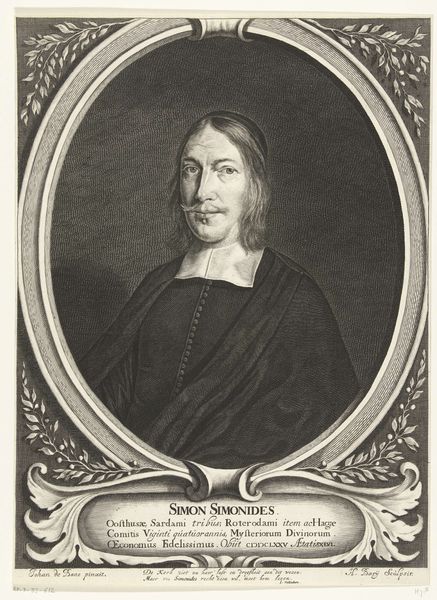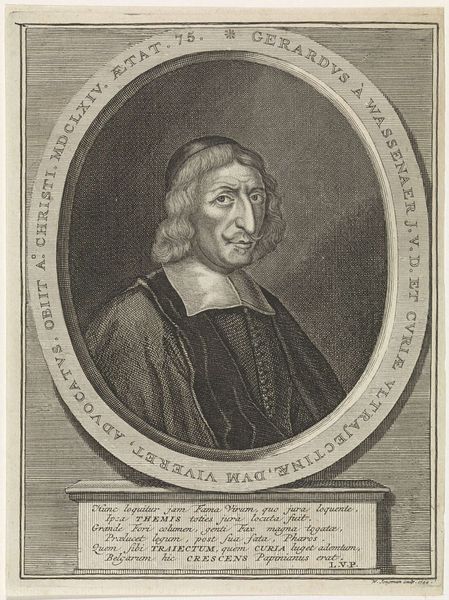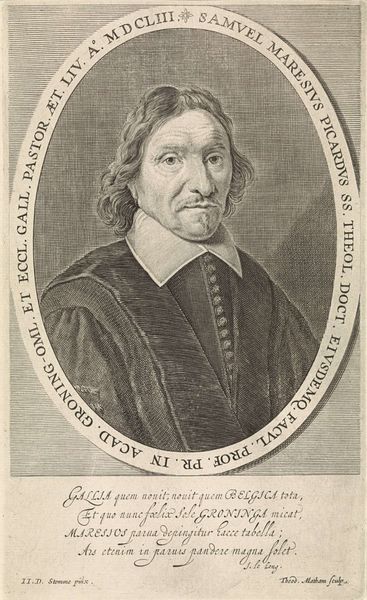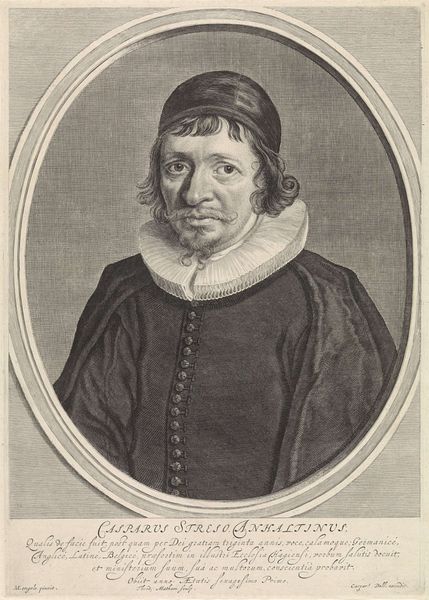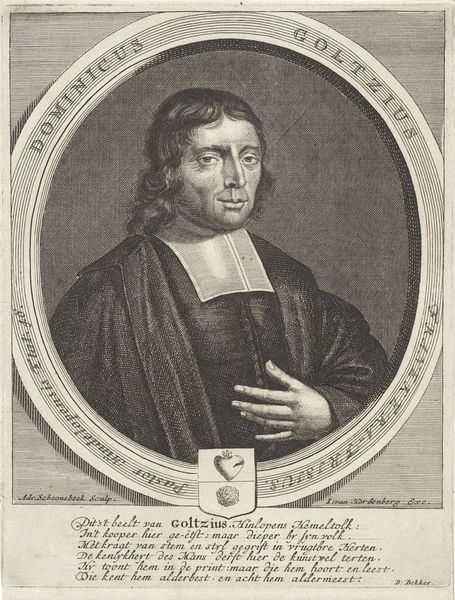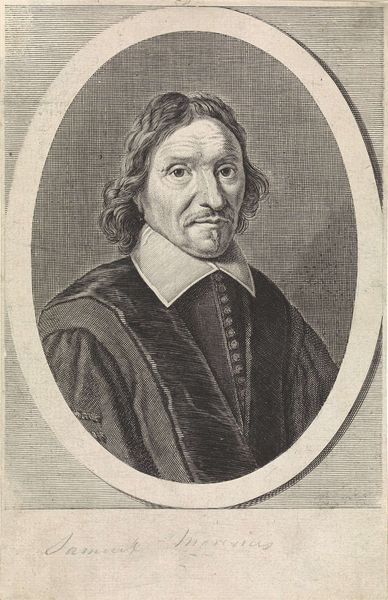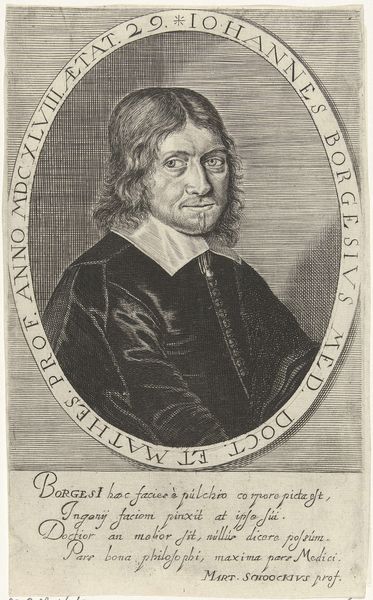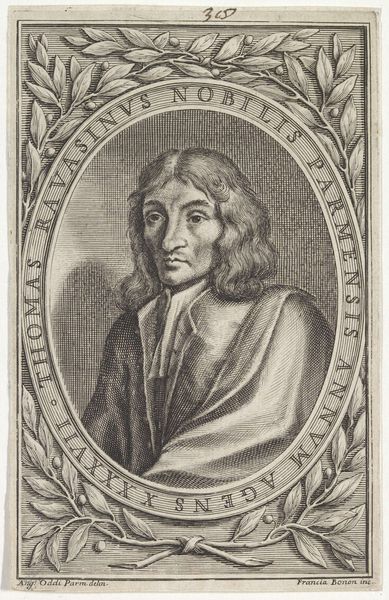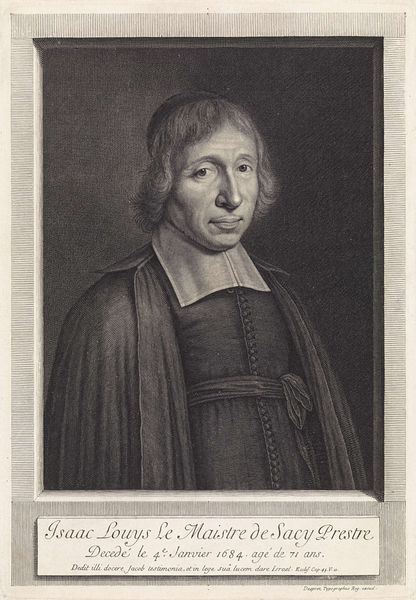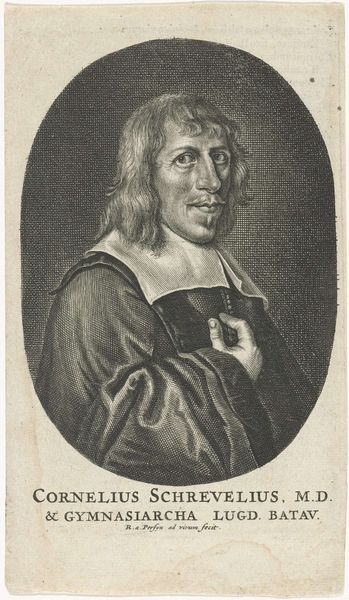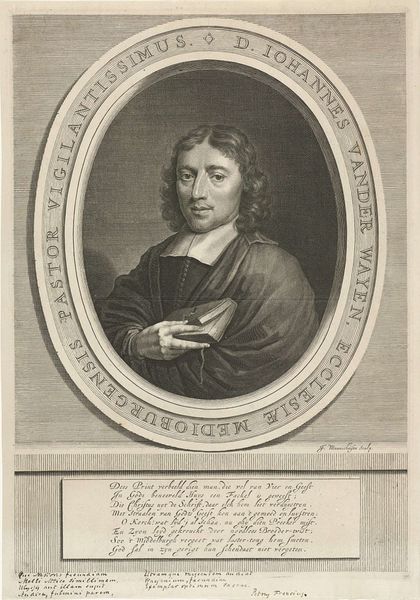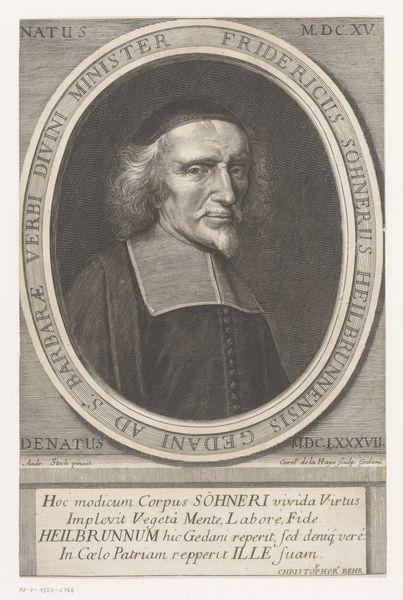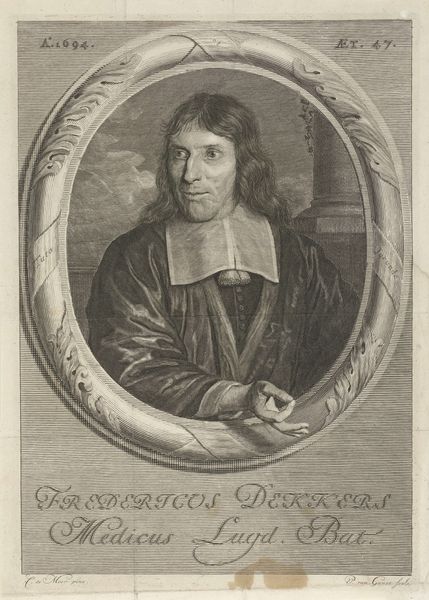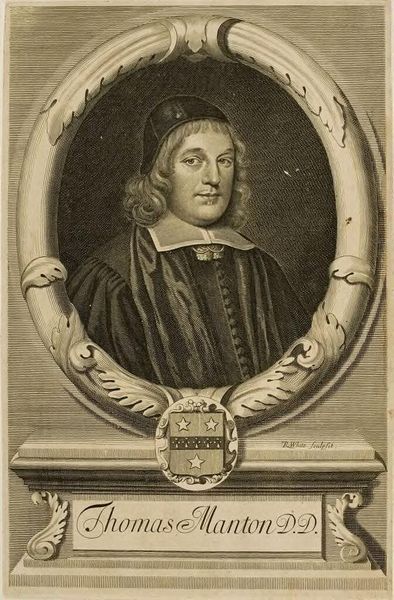
print, engraving
#
portrait
#
baroque
# print
#
old engraving style
#
portrait reference
#
line
#
portrait drawing
#
engraving
Dimensions: height 175 mm, width 116 mm
Copyright: Rijks Museum: Open Domain
Pieter van Schuppen made this portrait of Jean Hamon in 1689 using engraving techniques. Think of the labor involved: each line meticulously carved into a metal plate, then inked and pressed onto paper. The material and process here is crucial. Unlike a painting, where color and brushstroke dominate, the engraving relies on the precise control of line to create tone and texture. Look at the fine hatching that defines Hamon's face and clothing. This technique, rooted in the traditions of printmaking, imbues the portrait with a sense of detail and realism. But the engraving also speaks to the social context of its creation. As a reproducible medium, prints like this played a key role in disseminating images and ideas across Europe. They were a vital part of the early modern information economy. Van Schuppen's skill in capturing Hamon's likeness, and the printmaker's ability to reproduce it, reflect the value placed on craftsmanship in the service of knowledge and communication. It challenges our assumptions about what constitutes art, asking us to consider the labor, skill, and social function embedded in even the smallest of objects.
Comments
No comments
Be the first to comment and join the conversation on the ultimate creative platform.
